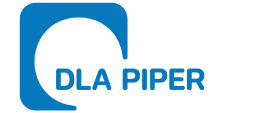In this age of intricate transnational ties, the international business community is placing an ever-increasing emphasis on the swift and economic settlement of disputes. Major arbitral institutions are adopting rules on expedited proceedings, promoting mediation, and/or embracing summary disposition procedures. All these initiatives are focused on managing the process and the taking of evidence: the focal points of procedural efficiency.
In addition, the arbitration community has developed several best practices and rules on various aspects of arbitration proceedings. An example of this phenomenon is the IBA Rules on the Taking of Evidence in International Arbitration (the “IBA Rules”) which were developed by experts from various jurisdictions and cultures to bridge the gap between common and civil law procedure.
The IBA Rules may not be suitable for all parties and all disputes, however, and the arbitration community is now developing an alternative set of rules on proceedings entitled “Rules on the Efficient Conduct of Proceedings in International Arbitration” (the “Prague Rules”) which will be launched in Prague in December 2018.
The Prague Rules provide more investigative and managerial powers to arbitrators to allow them to conduct the process effectively. These rules are built on the notion that early determinations of procedure and transparence in the conduct of the arbitration are beneficial to all participants. In this sense, arbitrators are endowed with powers to enhance the process if it struggles, to hold case management conferences, to limit the number and length of party submissions, and to direct witness examinations at hearings.
Arbitrators also retain discretion regarding expert submissions, as they may select joint expert commissions from candidates appointed by the parties. And with regards to document production, a party may be ordered to produce only those specific documents which are material to the outcome of the case rather than conducting far-reaching discovery, which is costly and burdensome. The Prague Rules also give arbitrators the opportunity to communicate their preliminary views to the parties regarding the relief sought at any stage of the process without the risk of prejudgment. In short, the Prague Rules are designed to overcome some of the obstacles of prolonged proceedings by promoting the proactive role of arbitrators.
Nonetheless, even the best efforts of arbitrators may be fruitless if a party resorts to dilatory practices. Interestingly, according to a major empirical investigation of arbitration practices worldwide conducted under the auspices of the Queen Mary University of London in 2018, “lack of effective sanctions during the arbitral process” was identified as the second worst characteristic of arbitration (following only “cost”). Accordingly, the Prague Rules grant sanction powers to arbitrators as well. In particular, arbitrators may reflect upon a party’s conduct and draw adverse inferences regarding that party’s case if the party does not follow arbitrators’ instructions without a valid reason. Similarly, arbitrators may consider the conduct of the parties when deciding on the allocation of costs.
In principle, these features of the Prague Rules should ensure that the proceedings will not be indeterminably delayed by unsolicited briefs. At the same time, however, the principles of fair trial are both fundamental and mandatory under the Prague Rules. Yet, it is also important that arbitrators view parties’ procedural rights in their full context. The fact is that in the vast majority of cases the initial agreement of the parties was to have their prospective dispute decided expeditiously. In this sense, the Prague Rules are in line with this early covenant.
The Prague Rules as an Alternative
The Prague Rules provide a new perspective on the proceedings by allowing arbitrators, with parties’ consent, to use their powers more extensively and have greater control over the process.
Accordingly, the Prague Rules provide an alternative to the IBA Rules and other sets of procedural rules. The one-size-fits-all concept does not reflect the nature of arbitration, which touches upon diverse legal cultures. Therefore, once adopted, parties and their legal counsels may consider the Prague Rules as a valuable instrument when drafting arbitration clauses, potentially providing a method for handling potential disputes more efficiently.
The Prague Rules are currently in draft form and open to comments by any interested party.
By Miroslav Dubovsky, Country Managing Partner, DLA Piper Czech Republic
This Article was originally published in Issue 5.11 of the CEE Legal Matters Magazine. If you would like to receive a hard copy of the magazine, you can subscribe here.


